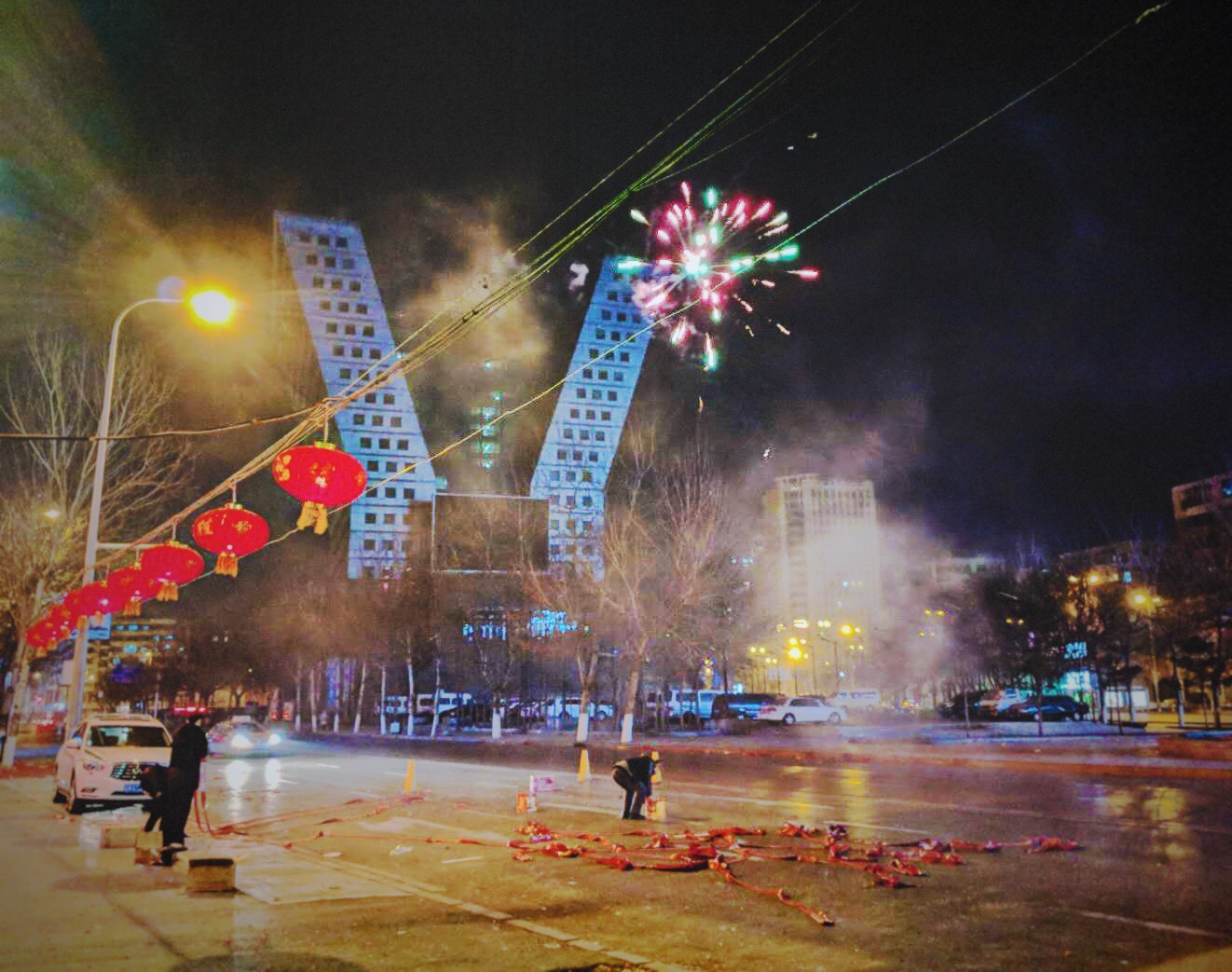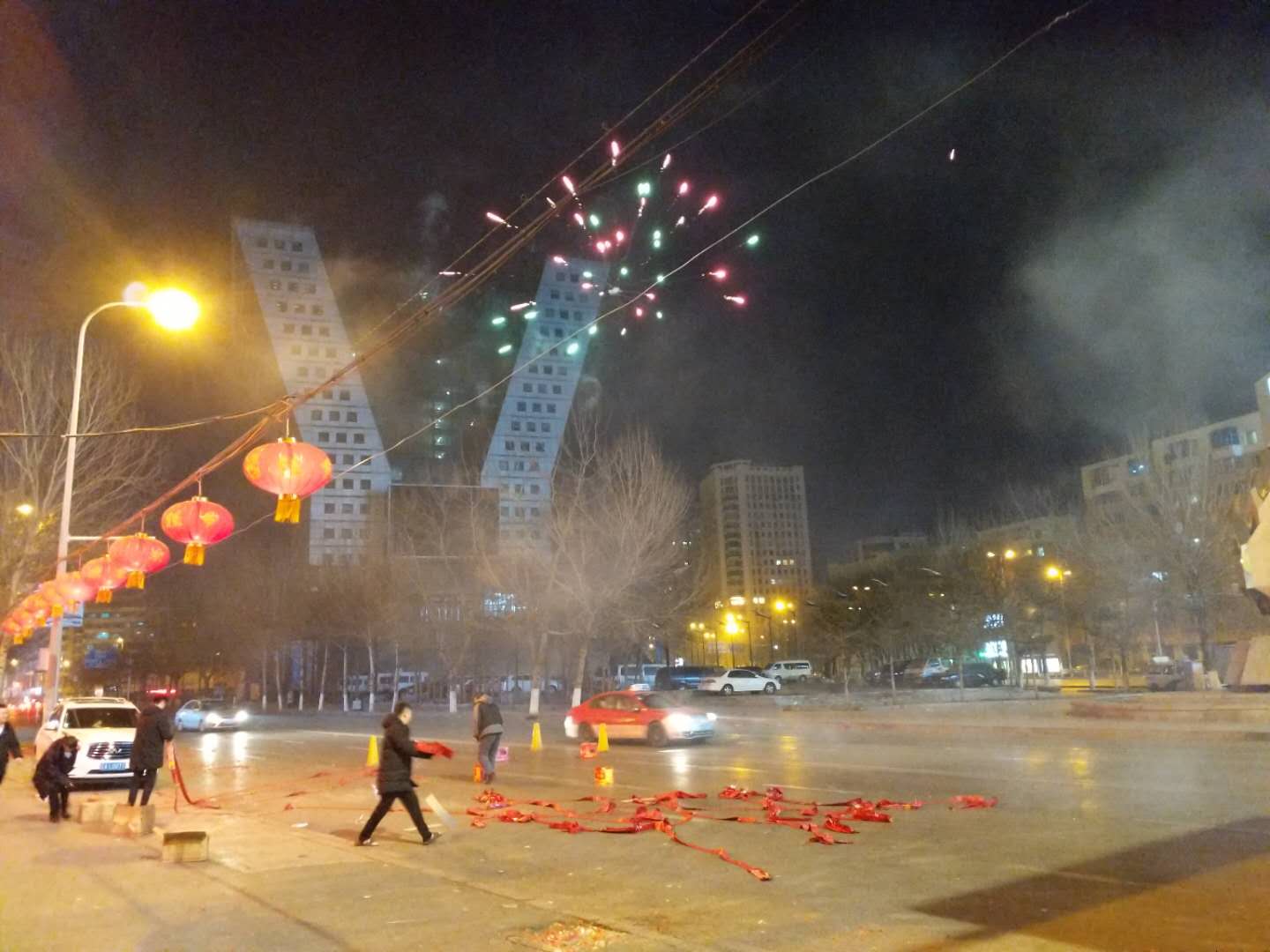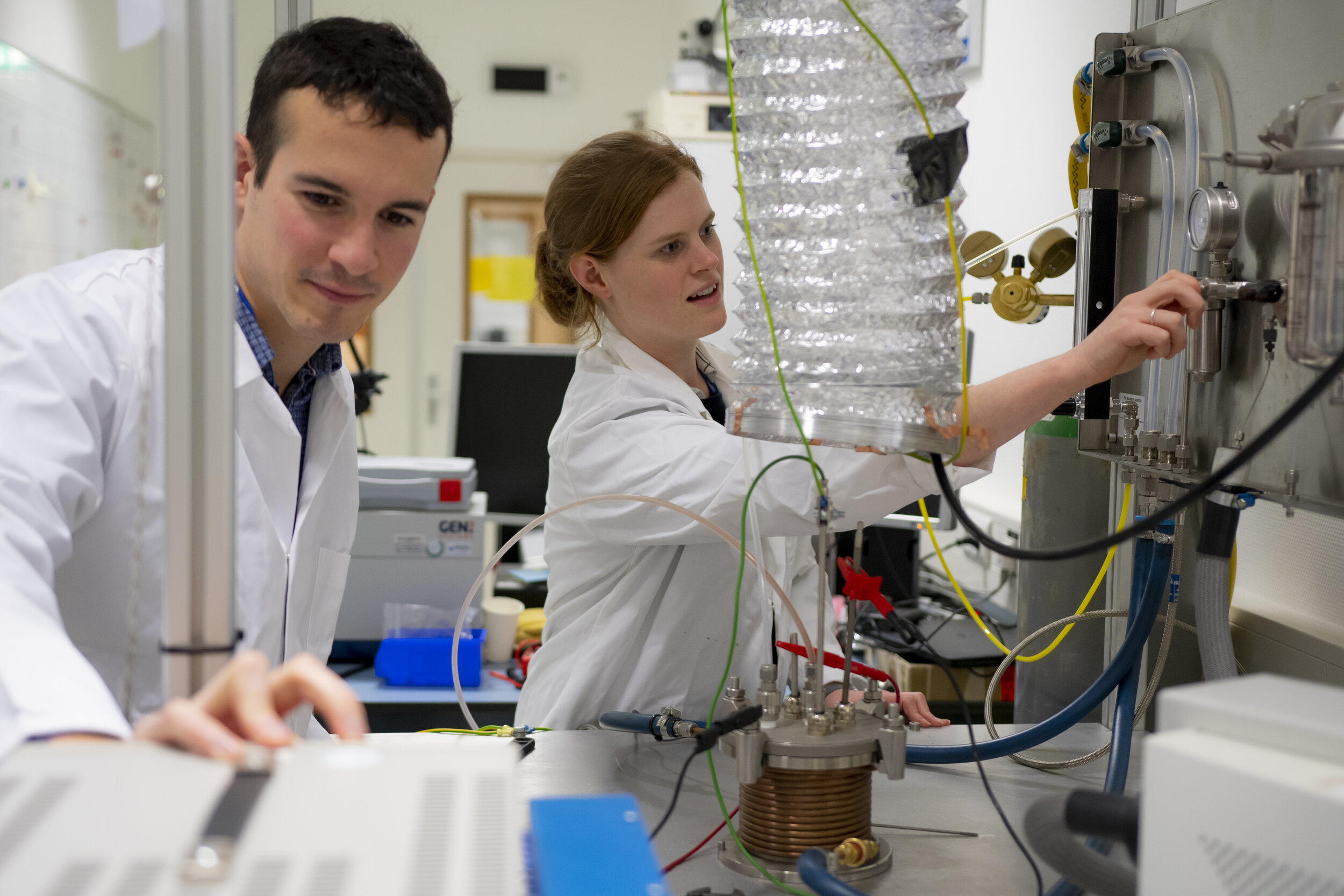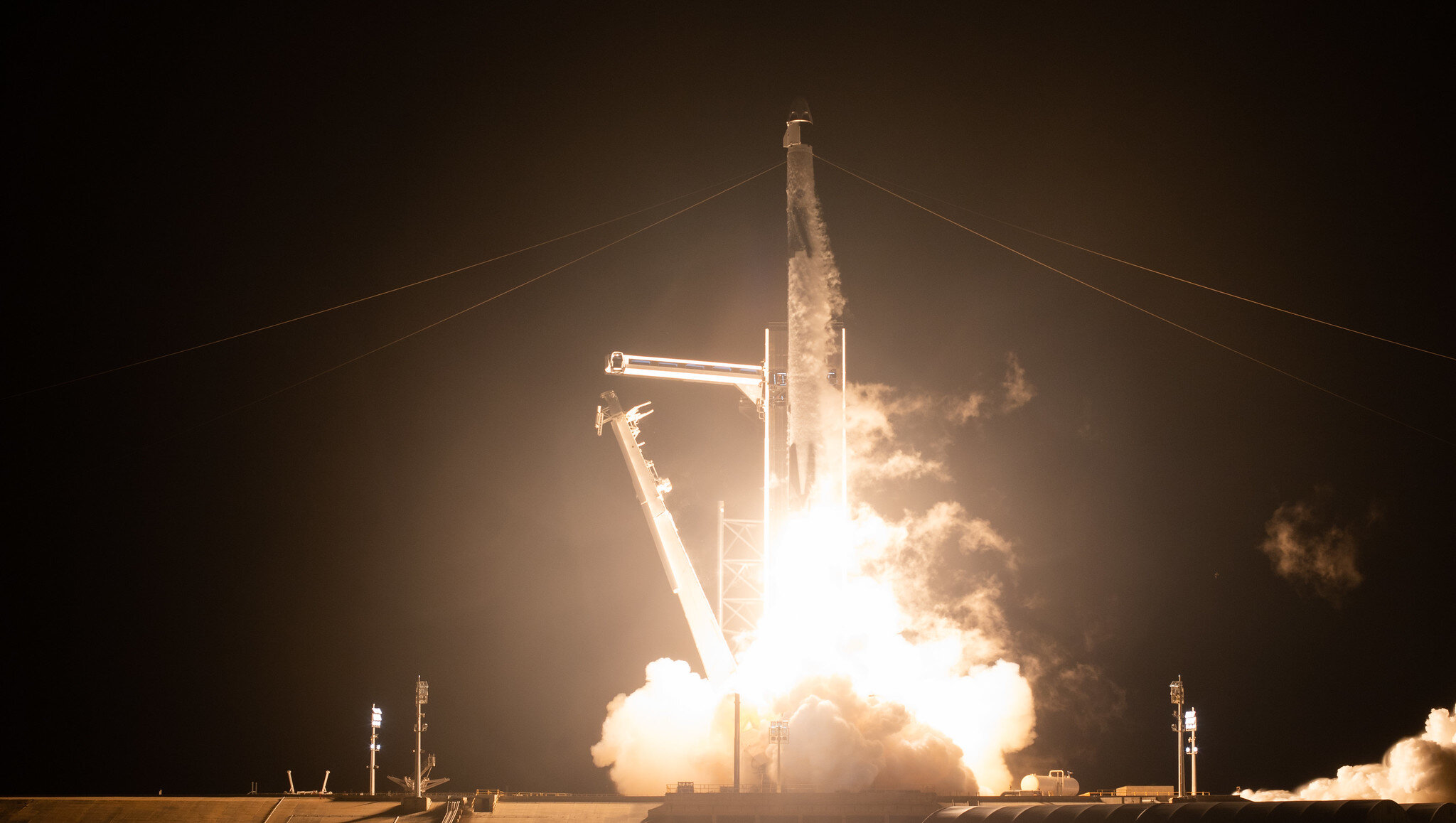New Year’s Eve is a crazy time to be in the Middle Kingdom, as Taylor and I found out as the largest annual migration of mammals on earth began around February 10th. Traditionally businesses give a person anywhere from 2-15 days off of work during the Spring Festival – the lunar new year, and every train and bus is crammed with people going home, whichever province, whichever city, whichever town that may be.
Also Fireworks.
The story seems to be that you launch rockets and whistlers off to scare something away, such as giant spiders, sea devils, or malevolent spirits. Like so many old traditions made modern, the translation often leaves something behind.
It doesn’t leave behind the fireworks.
On the night of the festival starting at about 8:30 when darkness falls proper, until twelve or fifteen days later, you are likely to hear fireworks going off at every hour of the day. From 7:30 am to 3 the next morning, its bang, boom, whistle, like a mini theater in the First World War. The best part is the rampant disregard for safety when launching off even something as big as mortars – a sensible parent’s worst nightmare. I exaggerate not when I say I saw a business cordon off the oncoming lane in the road to make room for a massive display of festive joy, before eventually lighting the whole battery off (right under a block of three story buildings) and waving cars including police officers into the other lane so the boss has all the room to make his grand contribution to the thunderous festivities. Ten minutes later the shop across the street, not to be outdone by the garish display, send their own men out to the median strip to light off the counter barrage; this one so tumultuous, one of the mortar boxes falls over and begins to discharge its payload bouncing across the street towards the oncoming traffic. Evidently the rule of the day is no mercy; not for trees, powerlines, fire safety, cars, people (I was getting pelted by mortar debris) or anything else that might be at risk for catching fire or losing an eye. A longer lived woman explained to me that it used to be such that Chinese folks would set off fireworks at anytime, anywhere for any reason, but that due to fires and eye ball loss, the government advised that it remain within the scheduled boundaries of the holidays. As a result, the police don’t honk a horn driving through a cloud of firecracker smoke in the wrong lane so they can pass revelers in the streets; and I never heard of any arrests made during the festival. Other traditions, less exciting, are also abound; as shop windows fill up with red boxes bound in golden cord or rope full of treats to be given out to friends and family, and specific traditional dishes are eaten on each day. The Lunar New Year is the closest thing to a Christmas here in China, but the gift giving is slightly different. Children are given plenty of toys like back home, but between adults, it’s all commodities, food, and supplies – such as eggs, cooking oil, or roast duck. Finding more familiar ground with our tendencies, the Zhong Gua Ren also like to give out candy, scented soaps, and other cosmetics.
It’s a pretty cool time to visit the country I think, for unlike the secular Christmas, Lunar New Year seems to be more connective, in the hearts of the people, to the past. However, if you are planning to visit China around the end of January, beware that trains, as I said, are often booked months in advance. Arrange your travel carefully; have back up plans or plans for rerouting (If I can’t make it here, or if there’s a problem, what hotel caters to foreigners, what other cities would be cool to visit?) China does what it can, from my limited experience, to provide prompt and professional transportation service, but in a country of 1.4 billion inhabitants, only so much can be done. Airplanes can be tricky, as often baggage rules are the opposite from what they are in the United States, i.e. batteries must be stowed in the carry-on rather than the checked baggage. With a little advice and know how, the fireworks and food and festivities can be a joy. If the displays in Shenyang are any suggestion, the bigger cities might be absolutely preposterous.
Shenyang is an interesting place. China is too. As Americans, I think we have a unique view on the Middle Kingdom. Some of you reading may know someone who lost a manufacturing job which was shipped over here, and being that Chinese things sometimes break prematurely, combined with their communist past and present and the fact they have a completely undecipherable language, your average American probably wouldn’t consider China a very nice place to visit. But the truth surprised me a little, and it might surprise you too.
Shenyang was a Pittsburg-like city a couple of decades ago, while a couple hundred years ago it was the summer capital of the Qing Dynasty – the last true Chinese Dynasty before darker times, subjugation during the opium wars by the British and later for different reasons by the Japanese, and the two world wars. Most people aren’t aware that the nation to suffer the second-highest number of casualties in World War II was actually China, with somewhere between 20-25 million dead, injured, missing, or captured. The Manchu, or Mukden, were northern pastoral people similar to the Mongols who ravaged northern China during the middle ages, that took their own slice of Zhong Gua during the 1600’s. Manchu, and likewise Manchuria are actually Japanese names for the northern most tip of China. Here in the tundra they refer to the land as Dong Bei, and to themselves as Dong Bei Ren. Ren means people, and I think Dong Bei is something akin to barbarian – don’t you dare quote me though. Shenyang itself is only a couple hundred kilometers from North Korea, and has a population of 8 million in the city proper. To put that in prospective, Shenyang is Columbus Ohio (800K), to Guangzhou (44 million) which would be New York (8.5 million.)
Since it’s Pittsburg like days, the city has greatly diversified itself, boasting three UNESCO Heritage Sites, and attempting to modernize itself with highbrow fashion and sky rise apartments. The shopping is the thing here. In Northern Virginia, where I’m from, one can simply say to one’s friend “Hey, want to go to the mall today?” Here you must be more specific. I could easily believe someone if they said that there are a hundred malls in this city. It’s fucking bananas; and I remember a time when Taylor and I exited a shopping mall of 5 stories built around a wall mart, only to accidently walk into a six story shopping center with every space filled in with a store. Leaving that mall, I began to recognize the Chinese character for mall, and noticed there were four more on the block alone. If you don’t have money here, you’re a chump, because spending is the main hobby. So much of the city is big cosmopolitan avenues stuffed with shopping opportunities where people of all levels of income stroll about.
Speaking of income levels, this is maybe the most surprising thing I’ve found. Even when you leave the city center proper, the touristy areas, the downtown and the highstreets, people are well dressed – or at least conspicuously dressed (maybe consciously dressed is the right word.) Now I’m not silly enough to judge the success of a nation based on how the people dress, but I expected to see a lot more rags. And speaking of rags, that’s the biggest surprise. I’ve seen more Pakistanis than I have seen homeless people. Seriously dear readers, in a city of 8 million, in a country of 1.4 billion, I have seen 6 homeless people in the whole city in 3 months of living here. Now to be fair, I do live, work, and move around in fairly nice parts of the city; but I’ve gotten out a few times and it’s the same story.
Without knowing anything at all specifically, it looks something like this: there are your high-rollers, people who have what you call “Guan Ci” which means “Special Connections,” which exist in a weird Mafioso sort of way just without the violence, you have the educated sons and daughters, now having children of their own, of the harder working generation which built modern China, and it almost seems like there’s still has a peasant class of citizen – people who work and earn, can eat and dress warmly, but really can’t escape the rat race. I’m not sure a lower-class of citizen like this exists in the America. Now is this a good thing? I’m not sure. Certainly having money for food and a warm apartment is better than being on the street, and yes obviously it’s sad their options are limited, but in China respect is paid to the children and to the elderly – both of which I’ve seen receive said respect, even considering their peasant status.
Now I have no idea how much of this is true, but from what I see it appears that there are just way more simply jobs available; people like cupboard-under-the-stairs shop owners, or street sweepers – though not like the ones in America who drive around in the big truck and ticket your car for parking on the street after 6 am on a Tuesday, but literal street sweepers – broom and dustpan. Whole squadrons of people come out when the sidewalks need shoveling. It was admitted to me they make very little money for this back breaking labor, so much so that the common phrase “Even the street-sweepers have a telephone,” is used to jeer at colleagues being too miserly. Seeing these peasant-like jobs makes me a little sad, but what if the country fully modernized and jobs like this were taken away? Thousands of uneducated people would be out of a job. With its population as it is now China can’t afford to modernize too quickly or this very wonderful lack of panhandlers and poverty might breakdown.
Could America learn something from this? I think back, on this balmy mid-march evening to Franklin Roosevelt’s New Deal. “A chicken in every pot and a car in every garage!” he once said. Trusting our forefathers to be the inheritors of a great new land that they were, he offered them a deal. None of you have jobs. Well I can put you all back to work, but you have to promise me you’ll do the job! Could this generation of American’s be trusted with that agreement? Could we dig drainage culverts for roads in Death Valley all day like the boys in the CCC did for only dollars a month? I bloody-well doubt it. There’s something about this country that strikes me as proto American, and I admire it immensely. I’ve heard a lot about, and witnessed it in my own previous occupation, the advance of robotics and technology removing entire sectors of employment from relevance; driving being the one most often touted as the martyr of scientific advancement while self-driving automobiles are rapidly reaching the point of widespread deployment. Now I’m not anti-capitalist; if you run a business you have the right to make money, and if that means cutting expenses, that’s a reasonable entitlement. But what if you cost ten people their jobs? What if you cost a hundred people, a thousand? What if you cost (the estimates for how many drivers work taxis and eighteen-wheelers in the USA today) 4.5 million people their jobs?
Is there room in our country for street-sweepers and snow-shovelers, more custodians in our malls and subways, and more food delivery drivers? Or are these things we should try and phase out, while attempting to push the most advanced societies in the world towards even higher levels of optimization? Do we lose something along the way, maybe a certain hardiness, if cleaning robots, self-driving cars, and automated assembly lines replace the human element? What if it doesn’t work? With education costs as they are in our country and our political system rapidly becoming an old, white, gangster squad sort of boy’s club, I think a lot more people are going to have to sit down and seriously consider what makes them happy in life; because what makes them rich might not be available with their skill set.




